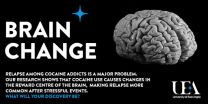(Press-News.org) A vaccine containing a protein necessary for virus replication can boost an HIV-infected patient's immune system, according to clinical research published in the open access journal Retrovirology. This boost can result in increased effectiveness of antiretroviral drugs.
When people are first diagnosed with HIV they are put on antiretroviral drugs, also known as highly active antiretroviral therapy (HAART). These drugs can stop the virus reproducing almost completely. When taking HAART, however, it is known that the virus can still replicate at low levels and accumulate in a latent form in what are called "reservoirs". These reservoirs, located throughout the body including the brain, bone marrow and genital tract, cannot be acted upon by HAART and can cause complications and deaths due to non-AIDS related diseases.
A vaccine was developed that targets the viral protein "Tat", which is produced early on in HIV infection. Tat has a key role in viral replication and progression of the disease by weakening the immune system. By designing a vaccine that included a small amount of the Tat protein, researchers were able to produce an immune response to prevent disease progression.
Lead researcher, Barbara Ensoli, said: "We prove for the first time that antiretroviral therapy may be intensified by a vaccine. These results open new scenarios to investigate, namely whether this vaccine may help with virus control where patients have low adherence to antiretroviral therapy, simplify treatment, and reduce transmission of the disease."
Researchers from the Italian National AIDS Center at Istituto Superiore di Sanità (Rome, Italy) conducted a Phase II clinical trial that injected 168 HIV-infected patients with the vaccine that contained either 7.5 micrograms or 30 micrograms of the Tat protein. For both doses, the participants received the vaccine once a month over the course of either three or five months. None of the participants had anti-Tat antibodies at the start of the trial and it was anticipated that the vaccine would induce them. The patients also continued on HAART treatment.
Patients were followed for three years (144 weeks). It was found that the vaccine induced production of anti-Tat antibodies. A significant growth of CD4+ T cells was also seen, which is a sign of the immune system's strength. There was also an increase in the T, B and other immune cells. The biggest response was seen amongst those who received the vaccine with 30 micrograms of Tat over the course of three months. These effects were found to persist for all the three years.
Those who received the vaccine also had a significant reduction in HIV "proviral" DNA load, which acts as an indicator of the latent form of the virus in reservoirs. This reduction was compared to a group of 79 patients receiving only HAART enrolled in a separate observational study, which acted as reference group for biomarkers of the disease. This is different from an internal control group.
The researchers see the results as very promising for the treatment of HIV in the future. However, they await the results of future efficacy studies, and of a phase II double-blinded trial of the vaccine with a control that has taken place in South Africa, to confirm their findings.
INFORMATION:
Media Contact
Joel Winston
Media Officer
BioMed Central
T: +44 (0)20 3192 2081
E: Joel.Winston@biomedcentral.com
Notes to editor:
1. Research article
Fabrizio Ensoli, Aurelio Cafaro, Anna Casabianca, Antonella Tripiciano, Stefania Bellino, Olimpia Longo, Vittorio Francavilla, Orietta Picconi, Cecilia Sgadari, Sonia Moretti, Maria R Pavone Cossut, Angela Arancio, Chiara Orlandi, Leonardo Sernicola, Maria T Maggiorella, Giovanni Paniccia, Cristina Mussini, Adriano Lazzarin, Laura Sighinolfi, Guido Palamara, Andrea Gori, Gioacchino Angarano, Massimo Di Pietro, Massimo Galli, Vito S Mercurio, Francesco Castelli, Giovanni Di Perri, Paolo Monini, Mauro Magnani, Enrico Garaci and Barbara Ensoli
HIV-1 Tat immunization restores immune homeostasis and attacks the HAART-resistant blood HIV DNA: results of a randomized phase II exploratory clinical trial
Retrovirology 2015
doi: 10.1186/s12977-015-0151-y
To receive a copy of the embargoed research article, please contact Joel.Winston@biomedcentral.com
After embargo, article available at journal website here: http://dx.doi.org/10.1186/s12977-015-0151-y
Please name the journal in any story you write. If you are writing for the web, please link to the article. All articles are available free of charge, according to BioMed Central's open access policy.
2. Retrovirology is an open access, online journal that publishes stringently peer-reviewed, high-impact articles on basic retrovirus research.
Retroviruses are pleiotropically found in animals. Well-described examples include avian, murine and primate retroviruses. Two human retroviruses are especially important pathogens. These are the human immunodeficiency virus, HIV, and the human T-cell leukemia virus, HTLV. HIV causes AIDS while HTLV-I is the etiological agent for adult T-cell leukemia. There is a large amount of basic research being conducted on HIV and HTLV-I spanning gene expression, virus structure-assembly, integration, replication, and pathogenesis. Retrovirology intends to cover these areas of human and animal retrovirus research.
3. BioMed Central is an STM (Science, Technology and Medicine) publisher which has pioneered the open access publishing model. All peer-reviewed research articles published by BioMed Central are made immediately and freely accessible online, and are licensed to allow redistribution and reuse. BioMed Central is part of Springer Science+Business Media, a leading global publisher in the STM sector. http://www.biomedcentral.com
For patients in the early stage of non-small cell lung cancer, surgical resection yields optimal outcomes. Prior investigations have shown that different resection procedures have very different outcomes, with pneumonectomy associated with three-fold higher mortality than other resection types. While it is understandable that pathological and physiological factors influence a surgeon's choice of surgery for a particular patient, the results presented in this study suggest that physician discomfort with the operative complexities of a procedure may lead to selection of a ...
Hospital readmission rates after major thoracic surgery can run as high as 10-17%. Alarmingly, readmission after pulmonary resection for lung cancer has been associated with worse outcomes, including higher mortality. Thus, reducing readmissions after thoracic surgery can both save lives and reduce healthcare costs. Studies in internal medicine and cardiology have shown that programs that improve the transition from hospital to post-discharge care can be effective in decreasing emergency room visits and re-hospitalization. This study from McMaster University describes for ...
People suffering from the common lung disease, chronic obstructive pulmonary disease (COPD), have an increased risk of sudden cardiac death (SCD), according to new research published online today (Wednesday) in the European Heart Journal [1].
When compared with people of the same age and sex who do not have the disease, those with COPD have a 34% increased risk of SCD overall, but their risk almost doubles more than five years after first being diagnosed with COPD. In COPD patients who have frequent exacerbations (sudden worsening of their symptoms, such as shortness ...
Marine ecosystems can be changed by night-time artificial lighting according to new research published in the Royal Society journal Biology Letters. The results indicate that light pollution from coastal communities, shipping and offshore infrastructure could be changing the composition of marine invertebrate communities.
Researchers from the Universities of Exeter and Bangor used a raft in the Menai Strait to monitor how artificial light at night affects the settlement of marine invertebrates into new habitats. Light is an important cue which guides the larvae of marine ...
New research by scientists at New Zealand's University of Otago suggests a need for a fundamental rethink of the evolutionary path of enzymes, the proteins vital to all life on Earth.
Enzymes catalyse a vast array of biologically relevant chemical reactions even in the simplest living cells.
Biochemist Dr Wayne Patrick says that people tend to imagine evolution as a slow and steady march from barely functional life forms in the primordial soup, towards a modern-day pinnacle of near perfection.
"When it comes to enzyme evolution, this is also the textbook version ...
MORE than two-thirds (69 per cent) of bowel cancer patients say they weren't advised to exercise regularly after their diagnosis - despite evidence that brisk physical activity is linked to better survival in bowel cancer, according to a Cancer Research UK study published today (Wednesday) in BMJ Open.
The research, from the Cancer Research UK Health Behaviour Research Centre at UCL (University College London), is the largest study of its kind. More than 15,000 bowel cancer patients* were asked about their current level of physical activity and whether they were advised ...
The coalition government derailed a successful programme that reduced salt content added to foods by industry, argue experts in The BMJ this week.
A poor diet is the leading cause of death and disability in the UK and worldwide. Large amounts of salt, for example, are added to food by industry and eating too much can raise blood pressure, a major factor associated with strokes, heart failure and heart attacks.
The UK's Food Standards Agency (FSA), established in 2000, became a "world leader" in improving nutrition and pioneered a salt reduction programme by working ...
Calorie counts should be mandatory on all alcoholic drinks as a matter of urgency, argues a leading public health doctor in The BMJ this week.
Fiona Sim, Chair of the Royal Society for Public Health, says alcoholic drinks contribute to obesity and the law "should require restaurant menus and labels to make energy content explicit in addition to alcohol content."
She explains that, since 2011, packaged foods in the European Union have been subject to regulation requiring labelling with their ingredients and nutritional information, including energy content (calories). ...
Cocaine use causes 'profound changes' in the brain that lead to an increased risk of relapse due to stress - according to new research from the University of East Anglia.
New research published today in The Journal of Neuroscience identifies a molecular mechanism in the reward centre of the brain that influences how recovering cocaine addicts might relapse after stressful events.
Importantly, the study identifies a potential mechanism for protecting against such relapses with treatment.
The research team looked at the effects of cocaine in rat brain cells (in vitro) ...
Women diagnosed with breast cancer who previously breastfed their babies had a 30 percent overall decreased risk of the disease recurring, according to a new Kaiser Permanente study published in the Journal of the National Cancer Institute. In addition, researchers found that the protective effect of breastfeeding was more pronounced for tumors of particular genetic subtypes, including the most commonly diagnosed of all breast cancers.
The study involved 1,636 women with breast cancer who completed a questionnaire that included breastfeeding history. Additional medical ...

